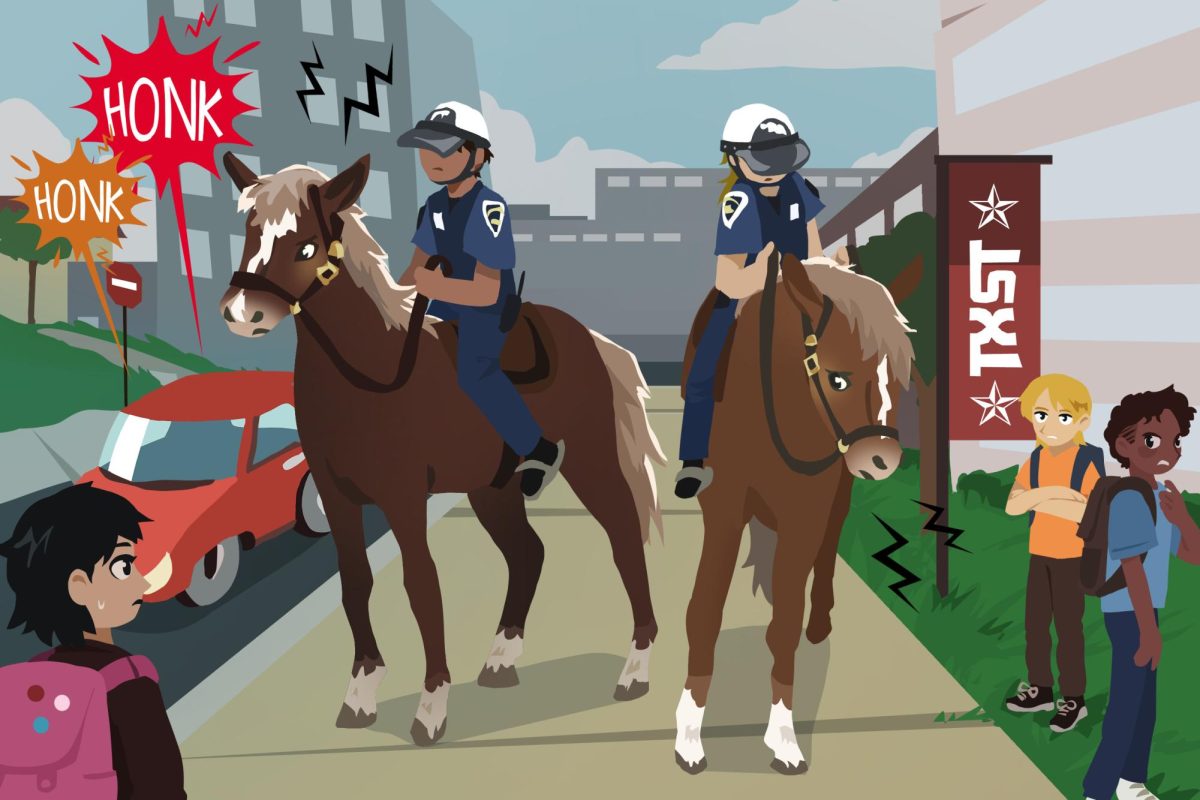At the start of every semester, college students have to prepare to spend a hefty amount of money on required course materials — textbooks, homework programs and access codes. According to Texas State’s Cost of Attendance chart, a student on-campus will spend about $760 on additional course materials.
For some students, simply paying tuition and fees is a struggle. On average, a Texas State student will pay $11,860 each semester. Therefore, it is absurd for students to spend additional money on textbooks they are not guaranteed to use again after a class is finished.
Students get it: Assigned textbooks and course materials are relevant to instructors. Instructors spend their time teaching and studying the subject of the assigned course materials and textbooks. It makes even more sense for instructors who create their own textbooks and are entitled to any resulting royalties.
But in contrast, students essentially waste hundreds of dollars on materials that may not have any relevance to their major or minor. Even if the course materials do have relevance to a student’s field of study, the student will likely not use the textbook again.
Marina Cardona, a marketing senior, says many of her instructors do not understand the struggle of students having to pay for rent, food and course materials.
“It’s insane because for some of us who are already struggling, that $200 for a book or access code could have been spent on food or rent. Some professors are so out of touch with reality,” Cardona says.
In addition to the blatant issue Cardona brings forth, instructors sometimes assign access codes required for students to complete quizzes and/or homework assignments. Access code programs include McGraw Hill Education and Pearson’s MyMath Lab.
On average, the access codes cost students at least $100. The price of the access codes only increases when add-ons are factored in, such as quizzes, homework problems and e-textbooks.
In some cases, the required access codes are only available to a student for the semester. Students end up paying over $100 for something they will have no access to ever again.
Amanda Soto, a psychology sophomore, says purchasing extra course materials hinders low-income and financially-independent students. She knows because she has experienced it herself.
“It hurts my wallet since I am becoming financially independent from my parents,” Soto says. “Having to pay an extra $210 outside of tuition and fees for two of the same programs seems so unnecessary and completely avoidable.”
Soto finds herself negatively impacted by the effects of buying extra course materials this semester more than ever before. She says two of her instructors are requiring students to purchase a certain overpriced program for textbook and assignment access.
“We can find the [assigned textbook] for way cheaper on Amazon or somewhere else instead of purchasing the overpriced program,” Soto says.
Low-income students cannot afford hundreds of dollars worth of course materials. Their inability to complete certain homework assignments, discussions or quizzes, because they cannot afford overpriced materials, has the ability to affect their grades negatively — which should never be the case. Required course materials should not have an impact on whether students pass or fail a class.
As an alternative to the issue, instructors should instead use the Alkek Library resources to accommodate their students.
The Alkek Library Catalog is a free resource to all Texas State students, faculty and staff. Instructors can use most of the library’s textbooks and resources to teach their classes. Further, it is a much more suitable option than requiring students to pay hundreds of dollars.
It is understandable that instructors may not understand or know the financial situation of every student. However, it is important for them to remember that simply paying for tuition and fees is a struggle in itself.
Students do not always have a steady flow of income, and money should never be a significant hurdle students have to jump over to experience success in the classroom.
– Nadia Gonzales is a public relations junior
The University Star welcomes Letters to the Editor from its readers. All submissions are reviewed and considered by the Editor-in-Chief and Opinion Editor for publication. Not all letters are guaranteed for publication
Opinion: Please stop requiring students to purchase additional class materials
February 3, 2021

Molly
Donate to The University Star
Your donation will support the student journalists of Texas State University. Your contribution will allow us to purchase equipment and cover our annual website hosting costs.
























